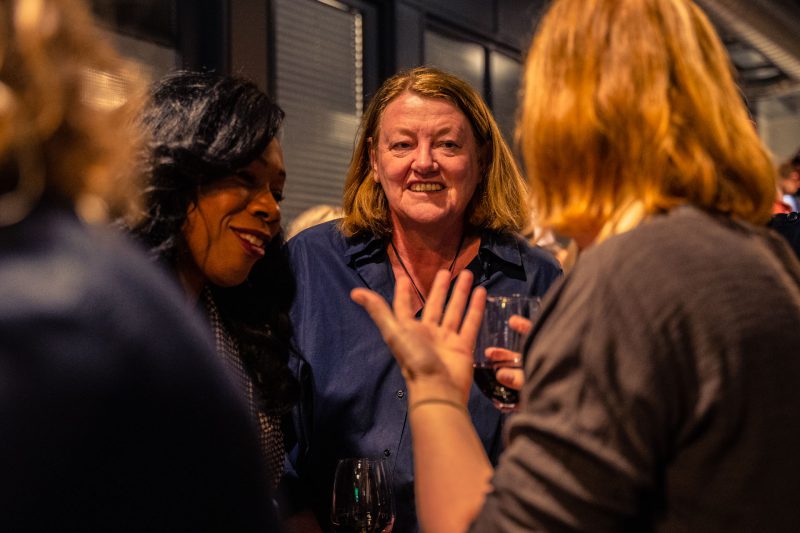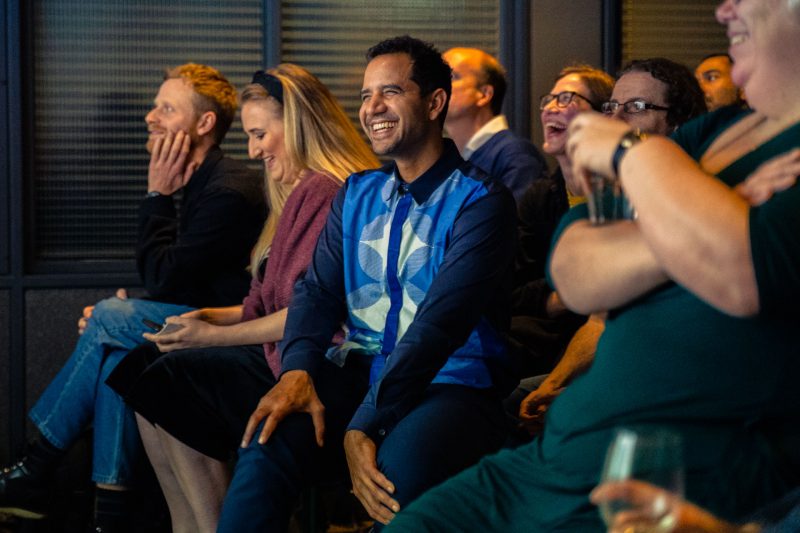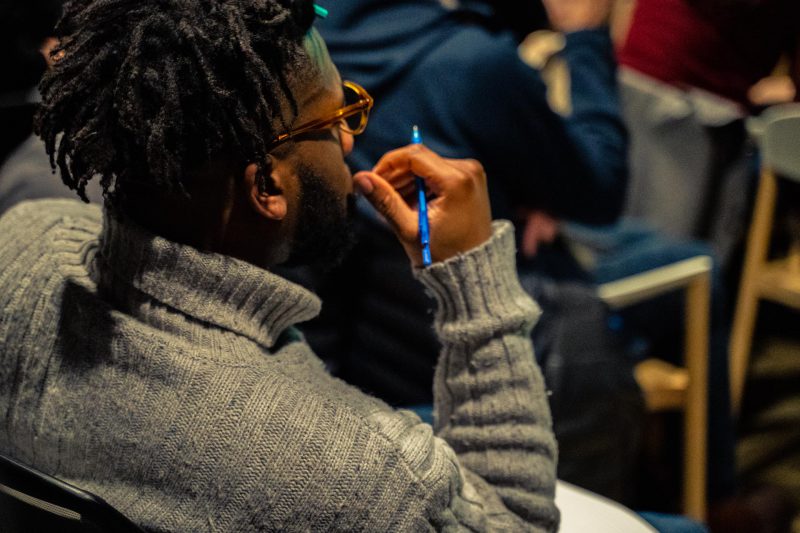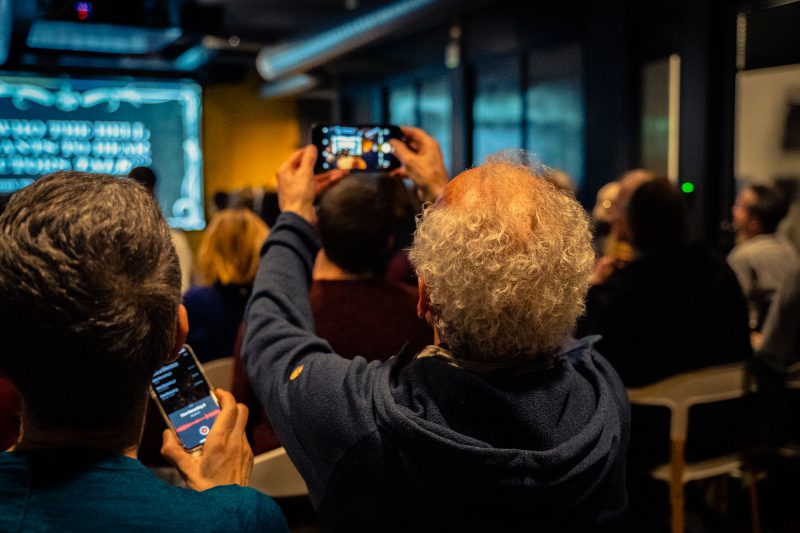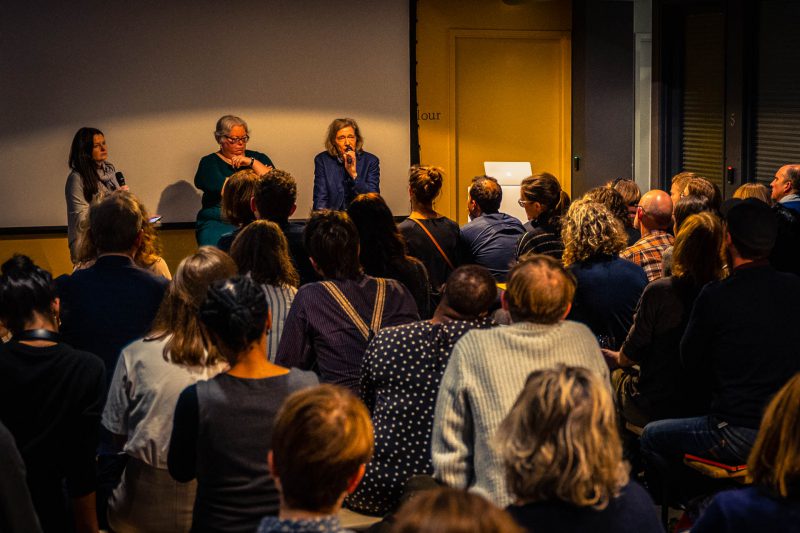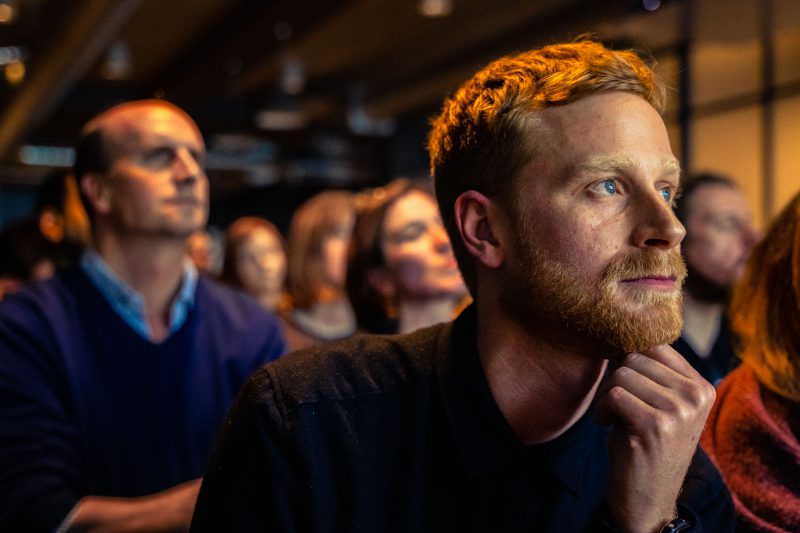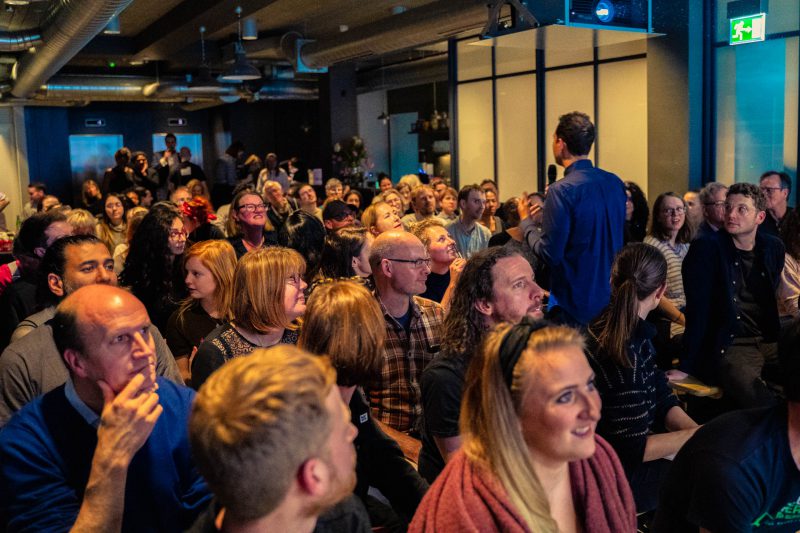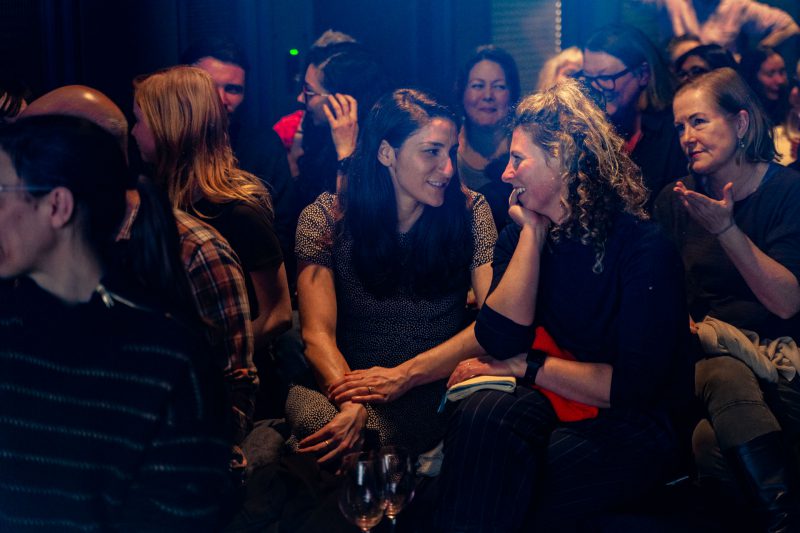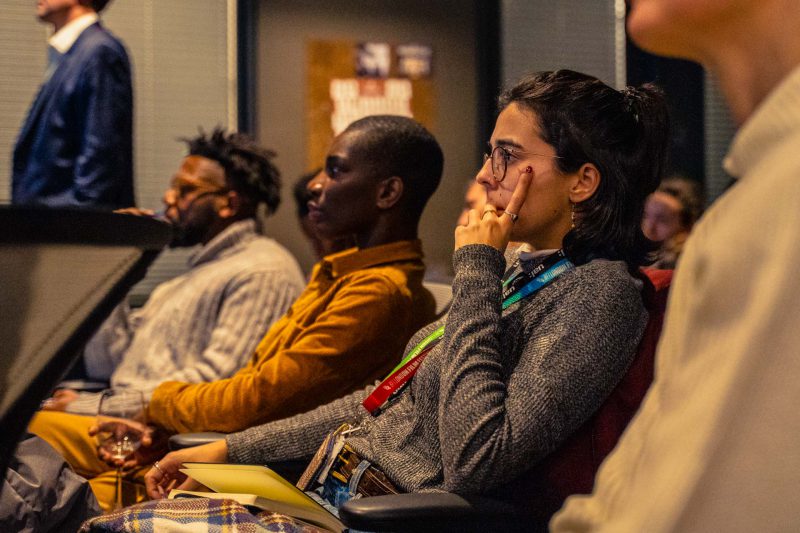Aaron Matthews, Head of Industry Sustainability at albert began the evening by showing what the world would look like if we continue at our current trajectory of emissions, with rising global temperatures of 4 degrees, which would leave huge swathes of Africa and Australia uninhabitable. He pointed out that the screen industries have a huge part to play in making positive environmental behaviours mainstream, and had the ability to reach audiences in meaningful new ways liked few other industries. And yet, in 2018 when albert conducted a subtitle report across 128,719 programme’s subtitles, the results showed that phrases related to climate change were mentioned 3,125 times, roughly the same as zombies and rhubarb.
Posted on 25th February 2020
Putting the Planet into our programmes – Post Event Write Up
On 13 Feb, albert invited writers and storytellers for the screen together to hear from a series of inspirational speakers and discuss how to write accessible, realistic, and optimistic climate stories into scripts.
Mark Stevenson - Futurist
Kicking off the speakers was Mark Stevenson, an author, keynote speaker and strategic advisor on the interplay of technology, society and innovation. Mark works as a futurist but by his own admission, nearly all predictions about the future are wrong! The best way to predict the future is to make it. Mark’s speech focused on the need for writers to embrace community and positivity rather than creating drama out of conflict.
The takeaway from Mark was that the way we currently operate doesn’t work; we celebrate winners and losers when we should be working together to create a society that is good for everyone. The biggest indicator of a long and healthy life is our social interactions so to create positive and engaging stories we need to focus on collaboration rather than conflict. What is scarce is valuable and this can be reflected in the media. We are not short of technology, inequality or scary stories about the climate. What we are short of is empathy and cooperation and therefore this is what we should be focusing on. Some key points from Mark’s talk:
- Writers write about conflict because it’s easier, writing about collaboration takes more imagination.
- Breaking this mould is originality. Conflict is cheap, collaboration isn’t.
- The Media doesn’t ask the right questions and we are in a cycle of echo chambers.
- Any investment of time or money that doesn’t consider the environment isn’t an investment – it’s a cost on the future.
- If storytelling and TV are so powerful why have they failed so spectacularly to help create the world we need?
- Bottom up collaboration is more diverse and leads to better results.
— Mark Stevenson - Futurist““The bad news is we’re fucked, the good news is we can fix it.”
”
Marlou Cornelissen - CEO of World Merit
The second speaker of the night was Marlou Cornelissen, the CEO of World Merit, a global youth movement that works directly with the United Nations to achieve their 17 Sustainable Development Goals. Marlou began by highlighting that the 17 Sustainable Development goals are all intertwined and the power to achieve them is with individuals. Many people want to help and to do something but don’t know where to start. World Merit offers them a framework to drive real change and this is an opportunity screenwriters have as well. Climate change is affecting communities from all over the world and the majority of them are the ones that have contributed very little to the problem. One example of this is Burundi, which has experienced mudslides, landslides and heavy rain, leaving 13,000 homeless and killing over 80 people. Out of 188 countries it was 14th most affected by climate change but 188th on the list of greenhouse gas emitters. Marlou highlighted that the effects of climate change differ hugely from country to country and there is no end to the human stories that could be told.
- In Indonesia illegal deforestation is the biggest challenge they face and there is a lack of governmental concern.
- In Kenya the droughts are leading to wild animals wandering further afield in search of water and food, meaning lions and hyenas are entering human inhabited areas more often.
- For all of these different problems there are many great organisations working towards solutions, but there are thousands of individual stories to be told.
- In South Africa there have been severe droughts which people were not linking to climate change. Margo started seeds for hope, a tree planting scheme launched to help people understand the need for climate action.
- In the UK, Lottie aged 6 couldn’t understand why people were consuming animals, saying “I don’t understand why people think they’re the centre of the Universe”. Her whole family are now vegan because of her.
Agamemnon Otero - Founder of Energy Garden and Co-CEO of Repowering
To finish off our speakers, Agamemnon Otero who is the Founder of Energy Garden and Co-CEO of Repowering took to the stage. After three very powerful talks with a lot of ground covered, Agamemnon instructed the audience to take a breather, which coincided with the first point of his talk; we are so busy looking for the next big thing we forget to be where we are. Energy Garden is a world-first project that delivers community gardens and community-owned renewable energy in London.
Agamemnon believes climate solutions will take years of development and that we need to remember the importance of time and community. In working together the solutions will be slow and deep rooted. A useful comparison here was the way that trees, beneath the surface share nutrients back and forth through their roots in a mutually beneficial altruist system. By working together and sharing knowledge back and forth throughout communities we can create simple sustainable living solutions that we can implement together.
Showing that solutions are all around us, Agamemnon used the example of transport, which uses 27% of the UK’s total energy output. TFL is the largest emitter in London so Energy Garden is reclaiming land alongside overground stations which will be cultivated by local community groups.
Again Agamemnon spoke of bottom up solutions:
- Involving communities and children in the problem makes them part of the solution.
- They are learning to directly change the environment with solar power and biodiversity.
- There are 80 community groups creating energy in London already – the solutions are here and now.
Tom Richardson - Head of Growth and Marketing for the Sustainable Restaurant Association
Third to the stage was Tom Richardson, who is Head of Growth and Marketing for the Sustainable Restaurant Association. The SRA’s purpose is to accelerate change toward an environmentally restorative and socially progressive hospitality sector in the UK. Tom started by emphasising how massive the impact of the food system is; it’s the biggest contributor to greenhouse gas emissions, the number one cause of deforestation, the main driver of biodiversity loss and the number one cause of premature death worldwide. Fixing the food system is the closest thing we have to a sustainability panacea.
Our current food system is focused in efficiency, where productivity is measured in terms of yield per hectare. This model pushes out nature, grows food full of nitrates rather than nutrients, leaves fertilizer in our waterways and could mean the world’s top soil has disappeared within 60 years. There are two proposed scientific solutions; land sharing and land sparing. Land sharing is the idea of farming with nature through Regenerative Agriculture and land sparing is about new technology. Tom believes we will inevitably end up with a combination of these approaches as well as necessary changes in diets. However food isn’t all about tractors, factories and soil, it’s about culture and this is where the stories come from. It’s about art and creativity, ethics and health, family, community and identity, tradition and innovation.
Like Mark, Tom highlighted that change can come from the bottom up:
- 1/3 of Britons have reduced or stopped eating meat
- Growing Communities, an organic veg seller in Hackney, now accounts for approx. 5% of fresh fruit & veg sales in the borough. And are working to replicate the model across other London boroughs.
- It’s in the intersection of the systemic and the cultural that the real stories of the food system grow, because the health of the planet and the health of every individual who lives on it are tied together by one thing – the food we eat.
- That means that 3 times a day everyone has the opportunity to better themselves and the planet.
- The good news is that the right choices taste delicious.
The evening finished with a panel discussion from Helen Blakeman, Lisa Holdsworth and Guy Hibbert who started by saying how enormously encouraging the focus on positive stories had been, particularly the focus on communities. The panel agreed that writers and the screen industries need to take responsibility; there’s a reason that we don’t see people without seatbelts or smoking on screen anymore and we need to apply these editorial policies to climate change as well. One of the most memorable lines from a film is I am Spartacus – what that means is we need to come together and overcome ‘the baddies’. Kate and Guy agreed with Mark’s initial point that we need to push ourselves, it’s easy to represent someone who cares about the environment as some swampy hippy, we should be showing the real stories of the grandmother who goes to protests because she’s worried about her grandkids or the guy who quietly eats his vegan salad for lunch at his office desk. We need to stop writing linear stories of creating evil and defeating it and look for ways of telling exciting stories without conflict. People don’t want lectures so we need to reflect what is actually happening in society around us, as Guy pointed out you won’t find these stories at your desk, you need to go out and find them.
The overarching message of the evening, touched on by every one of the panellists was one of community and collaboration. The evening was enormously positive and in the words of Kate “If you don’t leave inspired to rush home and scribble down notes then you’re a bad writer!”
— Dame Pippa Harris DBE, Chair of BAFTA““Though it may seem that our future has been taken from us, history is still being created. It is time to write a different script and share it with the world.”
”

